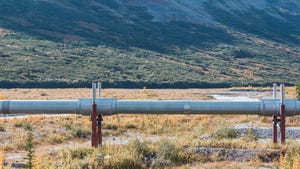Power Densities Likely to Drive Expansions
Average power densities continue to rise in data centers, and are affecting the lifespan of existing data center facilities, according to new survey data from Emerson Network Power. A majority of data centers say they will run out of capacity within two years, suggesting a wave of expansions is in the pipeline.The survey reinforces the prevailing wisdom that data centers are running out of power before they run out of physical space. Thirty four percent of respondents cited power as the primary factor limiting data center capacity, while just 14 percent cited floor space.
November 19, 2009

dcug-survey-Nov2009
Average power densities continue to rise in data centers, and are affecting the lifespan of existing data center facilities, according to new survey data from Emerson Network Power. A majority of data centers say they will run out of capacity within two years, suggesting a wave of expansions is in the pipeline.
Thirteen percent of the members of Emerson's Data Center User Group (DCUG) said the average power density in their data centers was 12 kilowatts a cabinet or higher, with five participants reporting average power loads exceeding 20 kw a cabinet. Eleven percent reported average densities between 8 and 12 kw, while the largest group of users - 36 percent - cited loads of 4 to 8 kw per rack.
Short on Power, Not Space
The survey reinforces the prevailing wisdom that data centers are running out of power before they run out of physical space. Thirty four percent of respondents cited power as the primary factor limiting data center capacity, while just 14 percent cited floor space.
The results underscore the need for many data center operators to expand their data center operations to add additional capacity. Fifty six percent of DCUG members said they expect to run out of data center capacity by 2011, with another 18 percent projecting capacity constraints by 2013.
But decisions about how to expand are being shaped by the difficult economy and companies' desire to conserve cash. This has boosted interest and colocation and wholesale "plug and play" data center space, while suppressing new data center construction.
Smaller and Smarter
Emerson says capacity-strapped data center operators are likely to respond by building smaller and smarter, while using hardware refreshes to improve their power density and squeeze more capacity out of a smaller facility.
"Data center professionals are discovering the efficiency gains enabled by high-density environments," Emerson notes in its analysis. "Sixty-three percent of the respondents to the fall 2009 DCUG survey indicated they plan to make their next data center new build or expansion a high-density (>10kW/rack) facility."
Availability A Growing Concern
But energy efficiency isn't the only motivator. Emerson also said that a series of high-profile data center outages in 2009 have heightened the focus on uptime, and are influencing decisions about tradeoffs between availability and energy efficiency.
Fifty six percent of the members of Emerson's DCUG cited availability as their chief concern, up from 41 percent just six months ago, the company reports. Emerson attributes this to media coverage of data center outages in 2009.
"High availability is no longer considered an insurance policy," said Chuck Spears, presidnet of Emerson's Liebert product line in North America. "One significant outage can wipe out years of savings achieved through incremental efficiency improvements. As we look ahead to the next decade, data center design and management must enter a new stage of maturity where organizations can reduce costs and improve efficiency without potentially risking performance."
In examining potential tradeoffs between availability and efficiency, Emerson highlighted differences in uninterruptible power supplies (UPS), noting the availability advantages of online double-conversion UPS configurations. This emphasis is not without its competitive considerations, as Emerson competitiors are highlighting higher efficiency UPS power efficiencies though the use of multiple operating modes.
About the Author
You May Also Like







